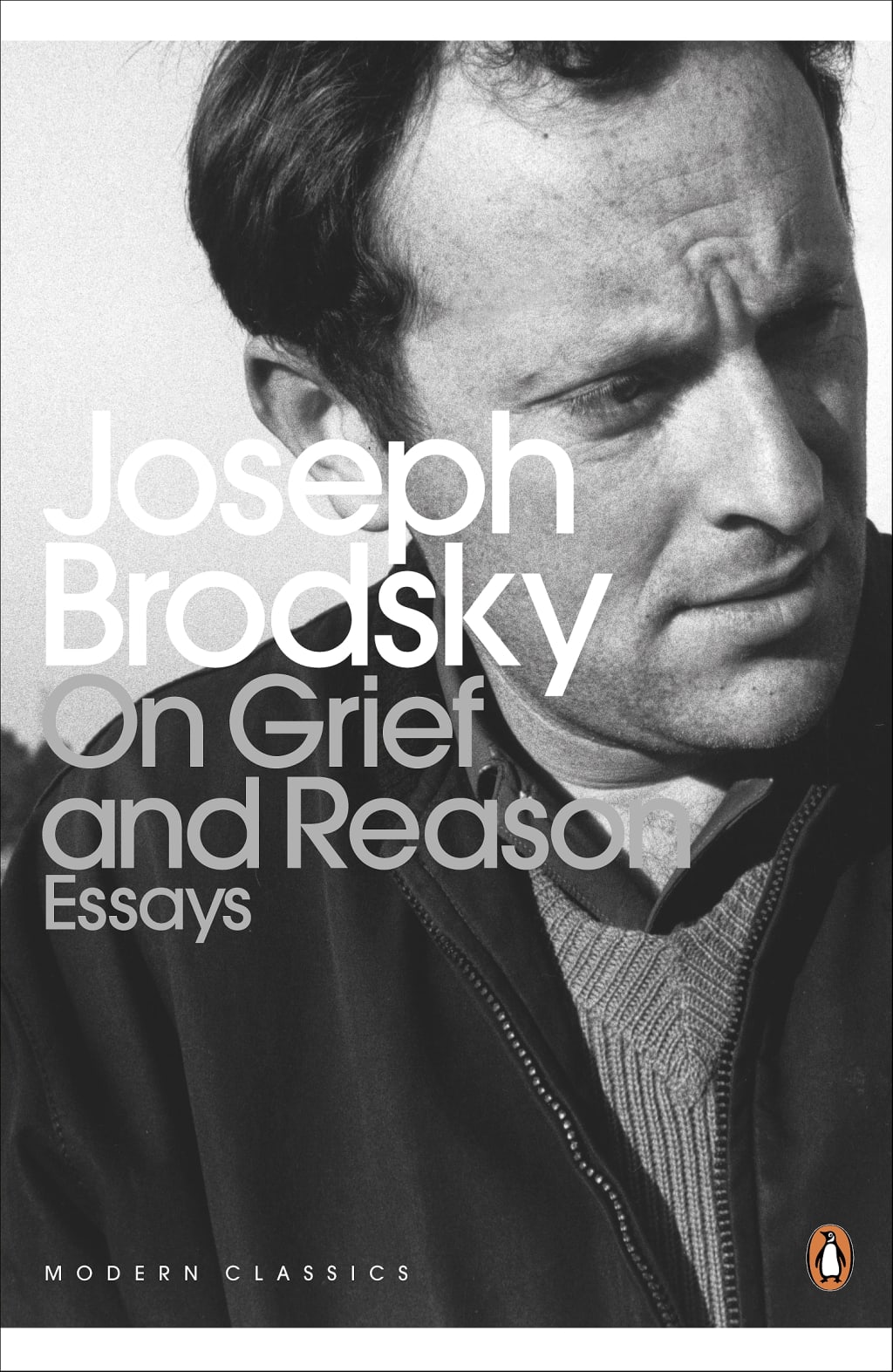Book Review: "On Grief and Reason" by Joseph Brodsky
5/5 - All the beauty and elegance of Brodsky at his best...

Joseph Brodsky has to be one of those writers that day by day, I am discovering more information about through his books. His writing style is often filled with descriptive anecdotes of times gone by, nostalgia in the form of an inability to let go and a beauty that only few writers of his time and age had. Through his text “On Grief and Reason” he writes essays about not only his life as a writer, but the political, social and historical meaning behind some of the views he holds very close. A quite, pensive but open-minded human being, famously Brodsky rejected his native Russia in favour of Venice, Italy and since then, it has been a constant uphill battle between what is good and what is legal. With neither country being the face of political utopia in the 20th century, Joseph Brodsky makes a point that in order to believe in something better, you have to distinguish yourself away from the current forms, finding what is structurally wrong with the system and working to solve the individual problems within your own soul - put there by your environment. This is a beautiful book of both hindsight and futurism, it covers a wide array of social topics and Brodsky’s own views are woven into the fabric of the essay, sewn across the various wants for idealism and the requirement for a government that values its people for more than their output.
Here are some of my favourite passages from the book that I think are some great pensive examples and also, some amazing exhibits of Brodsky’s best writing habits:
“I knew the tune, partly because of my radio, partly because in the fifties every city youth had his own collection of so-called bone music. ‘Bone music’ was a sheet of X-Ray film with a homemade copy of some jazz piece on it. The technology of the copying process was beyond my grasp but I trust it was a relatively simple procedure, since the supply was steady and the price reasonable. One could purchase this somewhat morbid-looking stuff [speak of the nuclear age] in the same fashion as those sepia pictures of Western Movie Stars: in parks, in public toilets, in flea markets, in the then famous ‘cocktail halls’ where you could sit on a tall chair sipping a milkshake and think you were in the West. And the more I think of it, the more I become convinced that this was the West. For the scales of truth, intensity, of imagination counterbalances and at times outweighs reality. On that score, as well as with the benefit of hindsight, I may even insist that we were the real Westerners, perhaps the only ones. With our instinct for individualism fostered at every instance by our collectivist society, with our hatred towards any form of affiliation, be that with a party, a block association, or at the time, a family, we were more American than the Americans themselves.”
It is strange that Brodsky would go from an anecdote about a song on the radio all the way to being a Westerner and more American than Americans were. But this is the way Brodsky writes, investigating every orifice of the argument in order to put across the epicentre of his point. It is a beautiful and wonderful skill and yet, so uncommon amongst many writers who choose more political and philosophical outlooks like Brodsky does.
“Now, and in the time to be, I think it will pay for you to zero in on being precise with your language. Try to build and treat your vocabulary the way you treat your checking account. Pay every attention to it and try to increase your earnings. The purpose here is not to boost your bedroom eloquence or your professional success - although those, too, can be consequences - nor is it to turn you into parlour sophisticates. The purpose is to enable you to articulate yourselves as fully and precisely as possible, in a word, the purpose is your balance. For the accumulation of things not spelled out, not properly articulated, may result in neurosis.”
It is clear from this and so many other quotations that Joseph Brodsky was a massive fan of articulate and beautiful language. Whilst making a point, he would often write with such an amazing hand of elegance and his words never fail to make anything other than perfect sense and atmosphere.
About the Creator
Annie Kapur
200K+ Reads on Vocal.
English Lecturer
🎓Literature & Writing (B.A)
🎓Film & Writing (M.A)
🎓Secondary English Education (PgDipEd) (QTS)
📍Birmingham, UK






Comments
There are no comments for this story
Be the first to respond and start the conversation.